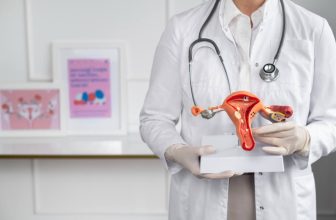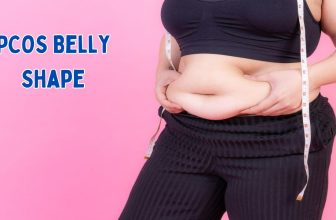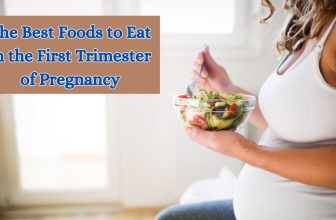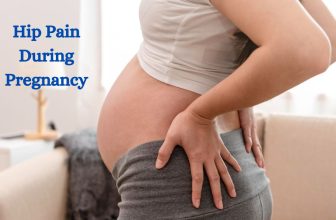5 Ways Women Over 50’s Can Stay Active And Healthy Through Diet

Along with the different lifestyles we choose our bodies experience so many changes in our lives. As we age, our bodies go through various processes, and we adapt our lifestyles to suit them. This fact is especially true for women. Their bodies change drastically from childhood to adolescence to adulthood and finally to old age. To live a healthy life, women need to live it in ways that benefit their bodies. This way, they can continue with a healthy and fulfilling life.
Women go through a process called menopause. During this phase, their bodies change drastically. Women’s bones become weaker, their bodies become too hot or too cold, and their immune system becomes weak. To avoid this, we need to understand how our bodies work. Getting advice from senior care services and other professionals can help you better prepare. They will guide you to the proper lifestyle, from a healthy diet to physical activities. Some ways to get you started include:
5 Tips for Active, Healthy Women Over 50
1. Maintaining Vitamin B-12
Aging changes the way our body functions in many ways, one of them being how our bodies absorb nutrients. Fewer nutrients get absorbed from food as we age, but this occurs at a greater level in women. A nutrient that your body probably hasn’t been absorbing enough of is Vitamin B-12.
Vitamin B-12, like all necessary nutrients, allows the body to function smoothly. Vitamin B-12 is responsible for maintaining healthy brain function and red blood cells.
You can find Vitamin B-12 in eggs, fish, lean meats, milk, cereal, and grains. Though these can very easily fit into your daily breakfast meal, even older adults who can handle all types of food may have difficulties absorbing enough of this vitamin.
For women over the age of 50, it’s generally recommended to have a Vitamin B-12 intake of 2.4 micrograms a day. Consult your doctor to determine whether or not that intake amount is being reached and if supplements might be an option for you.
2. Cut Down On Sodium Intake
Reaching 50, another aspect to take extra care of is your heart. Sodium intake can create an array of problems affecting your body, and it’s important to regulate how much you put into your diet. Excess salt in your diet can lead to a higher risk of developing kidney disease, heart attack, and even stroke.
It would be wise to caution yourself against eating processed, canned, frozen, and salty snacks as they all contain too much salt. Instead of adding more salt, you can add herbs, fresh fruits, and vegetables, or citrus can add that bit of flavour to your meals which may serve as a great substitute.
3. Calcium For Healthy Bones
Women that have gone through menopause will have their physical strength and bone density increasingly lowered. As an added concern, the risk of developing bone-related disorders such as osteoporosis and osteopenia also increases with age. Calcium is the primary mineral that maintains bone health, heart and muscle contraction, and nerve function.
Calcium can be found in most leafy greens except spinach and dairy products such as cheese, milk, yogurt, and soy and almond milk. Women over the age of 50 need 1200 milligrams of calcium a day. Using food labels as guides to see how much a product provides can help you keep track of your daily intake.
4. Protein To Preserve Muscle Mass
In general, women over 50 rarely engage in activities requiring a lot of physical movement. During this age, building and maintaining muscle is crucial; eating enough proteins will help preserve and build muscle.
Maintaining muscle mass ensures you can stay active well into your 60s, 70s, and maybe even 80s and onwards. You can maintain a more active lifestyle, a proper immune system, and a healthy metabolism with the proper diet and exercise.
The amount of protein you can intake is dependent on your individual weight. You may need around 0.5 to 0.9 grams per pound to maintain muscle mass and a healthy lifestyle. All of which can be efficiently obtained through foods like fish, poultry, dairy products, beans and lentils, nuts and seeds, tofu, and lean meats. Protein powders are an option if you struggle to meet the average amount of proteins needed.
5. Having Enough Fibre In Your Diet
Fibre essentially promotes digestion and healthy bowel movements, stabilises sugar levels, reduces the speed at which sugar is absorbed, and supports maintaining a healthy weight.
The best way to get your daily fibre is through foods like brown rice, popcorn, barley, oats, beans and lentils, vegetables, fruits, nuts, and seeds. The recommended amount for women is 25 grams per day, while for men, 38 grams is recommended.
Conclusion
Ageing is a process we all go through, but not necessarily in the same way or have the exact same effects in the same amounts depending on gender. Women who are age 50 and above will find significant differences in the way their bodies now function than either their younger selves or even compared to men. For this reason, a look into and preparation for a new lifestyle must be adopted to maintain and make up for how your body now functions.
With the proper diet, lifestyle change, and exercise, it’s possible to uphold and manage a healthy and active lifestyle. Hope this article helped.
Related Articles: Square Butt – Everything You Need to Know





